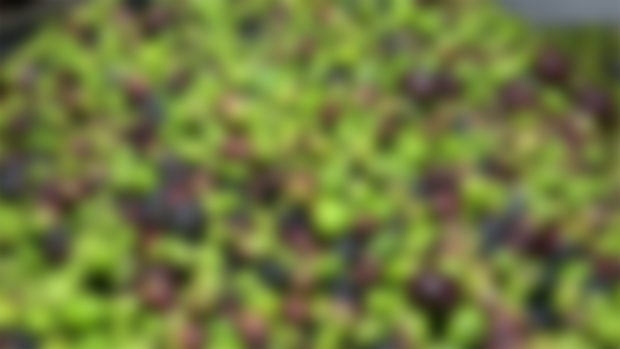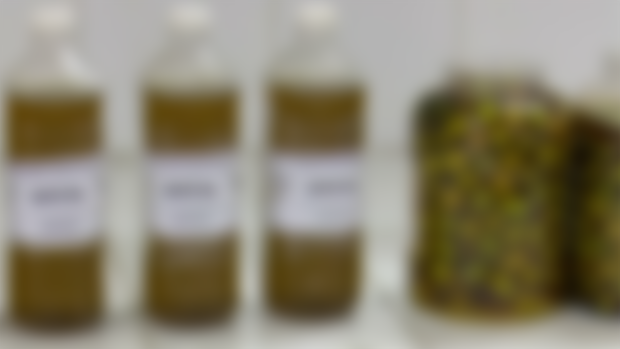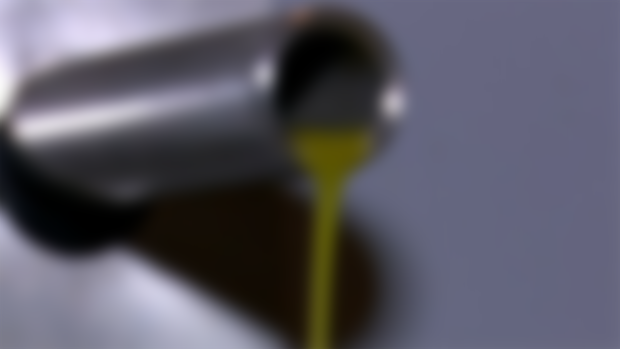
It was not easy for Dir Muhammad Israr to accept the suggestion of quitting his contract job at the Italian embassy in Islamabad and grafting olive trees on family land.
"Dad encouraged me and today there are more than 100,000 olive trees on our homeland, 22,000 of which are bearing fruit. There are 25 members of our family in it and each participant is getting at least one million to two million annually.
Muhammad Israr told the BBC that it was in 2004 when he met Italian agronomist Rafael del Seema while working at the Italian embassy, who is currently on a mission to promote olive cultivation in Pakistan. Were
Raphael told me that there are millions of bloody (wild olive) trees in your area (Dir district). This is a very valuable asset. The olive wealth can be obtained by penning pens made from good olive trees brought from Italy.
He says he also had several thousand trees of blood on his own land, but it was not easy to accept the suggestion to quit a good job and do it on a full-time basis. But after consulting his family, he agreed.
"In 2005, we trained with Raphael del Seema and government officials involved in agriculture. Many trees were penned. Within three weeks, the trees sprouted, and in 2009, hundreds of trees were planted with the best varieties of olives. But we still didn't know that the fruit had arrived and what to do about it. "
Mohammad Israr says that after the initial difficulties, they now not only get oil but also other products from it, including marmalade, pickles, olive leaf coffee, etc., and bring them to market.
This is the story of the late Muhammad Israr. Now let's listen to the story of Nusrat Jamil, a resident of Abbottabad.
Overseas relatives and close friends usually order expensive gifts such as expensive watches, mobile phones or perfumes, but Nusrat Jamil has repeatedly asked his friends for the same gift over the past two decades. And that is the gift of the pen of the best breed of olive tree.
Many varieties of olive trees are now springing up on Nusrat Jamil's ancestral land in the Havelian area of Abbottabad. The reason for the variety of olives in this small village called Thanda Pani is because of Nusrat's friends who do not forget to bring him olive gifts from Canada, Italy, Spain, Turkey and other countries.
Nusrat Jamil says of his journey of more than two decades of friendship with olives, he was introduced to the fruit by a friend from his village in Havelian in 1996, when the olive cultivation project in Pakistan was just beginning.
The determination of the governments kept coming and going, but Nusrat Jameel was so engrossed in it that it was as if he had fallen in love with olives. Nusrat Jameel's morning and evening routine is now to take care of these olive trees and prune them.
Nusrat Jameel or Mohammad Israr are not the only olive growers in Pakistan but there are currently hundreds of farmers in Pakistan who are cultivating olives to meet their domestic, economic and national needs. Most of the farmers are producing olives with 'pen' in wild olives.
When and how did the idea of olive cultivation come to Pakistan?
Akhtar Nawaz, director of the Hazara Agricultural Research Station in Abbottabad, told the BBC that olive cultivation in Pakistan began almost three decades ago when the Pakistan Oil Development Board began work on it in 1996-97.
According to him, in the beginning, wild olives were transplanted under this project as this variety is successful only on hilly and rough terrain. According to him, there are millions of wild olive trees in Hazara division.
According to him, olive varieties from Turkey and Italy are not only suitable for Pakistan's climate but have also improved oil production.
What is wild olive?
The wild olive tree is called Khona, which is called Khona in the majority areas of Khyber Pakhtunkhwa, Khun in the southern districts, Kahu in Punjab and Kashmir and Hath or Hath in Balochistan.
There are many villages and hamlets in the four provinces of Pakistan which are named after Kahu, such as Kahu di Qila, Kahu da Banda. Similarly, the famous village Kahu Sharqi in the Bakot area of Abbottabad, Bhara Kahu on the way from Murree to Islamabad is also known by the same tree.
These places are said to have been named after the large number of Kahu trees. According to Ahmed Syed, research officer at the Tarnab Farm Agricultural Research Center in Peshawar and in charge of the olive project in Khyber Pakhtunkhwa, there are different types of olive trees, one of which is wild olive. Wild olive is a native and edible tree of Pakistan.
It is found in large numbers in all four provinces of the country, Pakistan-administered Kashmir and Gilgit-Baltistan. It is abundant in Khyber Pakhtunkhwa and Balochistan. Each area has a different local name. The root and wood of the wild olive are very strong and it is in perfect harmony with the ecosystem of Pakistan.
The age of the olive tree can be more than a thousand years.

'Olive products sell easily'
Muhammad Israr and his family not only pack high quality olive oil but also make olive leaf coffee and sell it in the market.
Mohammad Israr says that we do not have to go to great lengths to sell olive products in the market and most of the buyers contact us to buy these products themselves.
'Silent Green Revolution'
Currently, this facility is also available for farmers in Abbottabad, Mansehra (Shankiari), Peshawar, Singhbati and Nowshera (Tarnab Farm) in Khyber Pakhtunkhwa Province of Pakistan, while olive production is also taking place in several areas of Punjab including Chakwal.
The government also has a 'model farm' of olives in Chakwal. The research center here has been researching different types of olives since 1991.
Akhtar Nawaz, director of the Hazara Agricultural Research Station, says more than five tonnes of olive oil has been extracted in Abbottabad so far this season.
Liaqat Tanoli teaches oil processing at Hazara University. He told the BBC that the most important thing about olive production was the government's commitment so that Pakistan could succeed in the project.
According to Dr. Liaqat, the quality of olive oil is many times better than that of palm oil because it is processed under the cold method which does not waste the useful ingredients for the human body.
According to him, Pakistan is a country which in the past helped Malaysia in the cultivation of palm oil but now it is spending huge amount of money on the import of this oil.
According to Akhtar Nawaz, landowners' interest in olive cultivation has increased over the past two years.
He said that olive growers should also be provided with tools to safely pick olive fruit as the olive fruit is small in size and should be picked in such a way that it does not damage the tree and the fruit. Arriving is a very difficult task.
According to Akhtar Nawaz, the market price of olive oil has been fixed at Rs 1,500 per liter at the official level, but it has not yet started commercial production in Hazara.
Dr. Fayyaz Alam is the General Secretary of the Dua Foundation, an organization that provides support to farmers in increasing olive production.
According to Dr. Fayyaz Alam, wild olives in Pakistan do not face any major environmental hazards. According to him, it is a tree of cold and hot seasons, it can withstand the harshness and harshness of the weather.
He said that 0.2 acres of Balochistan has historical and old forests and trees of wild olives, which meet many needs of the local population, including fodder for livestock.
He said that at present wild olives are in great danger due to the use of its wood as fuel by the local population as the locals do not have access to alternative fuel facilities which is why they use wild olives. Are forced to use wood.
According to Dr Muhammad Tariq, National Project Olive Islamabad, there is a tradition of using wild olive wood for fuel in other poor and mountainous areas of the country besides Balochistan, which has created awareness among the local population. Have to do.

Advantages and disadvantages of converting wild olives into good olives
According to Dr. Fayyaz Alam, better results are obtained by writing on the mango plant. In the same way, writing on wild olives with good olives in a simple way has yielded 'amazing' results.
Select some good branches on a wild olive tree and cut them with a saw and put two cuts on the bark which are exactly opposite to each other. The pen should be selected according to the thickness of the cut stem.
Cut the pen and put it in the bark of the stem. Wrap tightly with plastic. Both pens should be well covered with plastic and tied.
According to Dr. Muhammad Tariq, it is true that good results can be obtained by grafting good olives on wild olives, but some precautionary measures must be taken in this regard, otherwise there is a danger that some environmental problems may arise.
After pruning, these trees need to be watered and fertilized.
Wild olives do not need any care, but when wild olives are converted into good olives, they need to be cared for in the same way as a fruit orchard needs to be cared for.
According to Ahmed Syed, if the grafting on wild olives is successful, the buds start sprouting on the pruned twigs in three to four weeks while the olive tree starts bearing fruit in four to five years.
He said that 40 to 120 kg of olives are produced annually from a good olive tree.
'Olive orchards planted on 25,000 acres'
According to Dr. Tariq, we have four million hectares of unused land in the country where olive groves can be planted. He said that Spain produces the most olives in the world while it has olive groves on only 2.6 million hectares of land while Pakistan has more land than Spain where good quality olives can be cultivated.
"It will not affect our agriculture and local orchards at all, as the land is not being used at the moment," he said. Pakistan currently imports more than تین 3 billion worth of edible olive oil annually for its own needs.
According to him, in the first phase of large-scale olive cultivation, if Pakistan becomes self-sufficient in its needs, not only will valuable foreign exchange be saved, but in the second phase, it can earn valuable foreign exchange by starting exports. He said that the projects that have been started so far have shown tremendous economic activity.
According to Ahmed Syed, olive is an eco-friendly tree that has the best ability to use carbon, clean the air and the environment. It is less susceptible to pests and diseases which makes it less in need of pesticides and less water than other fruits, which makes it less watery like Pothwar. It can also be a very important crop for the region.


